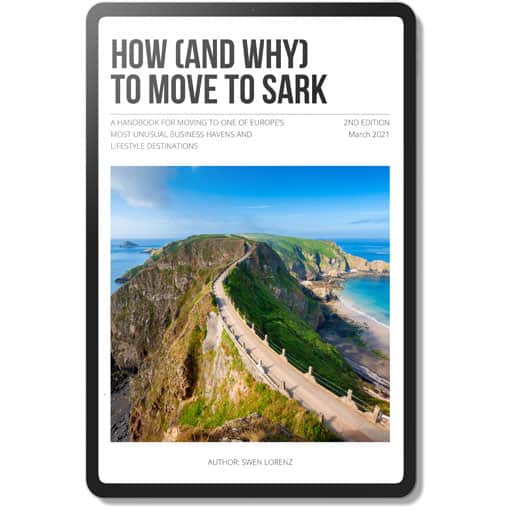The very earliest phase of your business is also one of the most dangerous. It’s the same as building a house: If you don’t put in the right foundation, whatever you build on top of it will not be as safe and secure as it could be. It could even topple over!
Entrepreneurs regularly ask me to help them with their fundraising. Mostly, their company is still early-stage, but way past “seed” or even “pre-seed” status. Sadly, more often than not I have to turn down their requests. For lack of experience, they hadn’t put in the right foundations right at the start, which would make any involvement at a more advanced stage too painful and time-consuming for me to even consider.
Coincidentally, I recently attended a talk by two fund managers providing pre-seed money. Their approach and clarity in explaining the value of pre-seed funding impressed me.
In other words, this is a subject that was just begging to be written about!
Investment before you are investment-ready
“Pre-seed funding is before you are really a business and before you can start to take institutional investors onboard.”
That’s how pre-seed is described by Esha Vatsaand Raya Yunakova, who work in early-stage investment management and pre-seed funding at Pi Labs. Their firm is specialised in Proptech companies (it’s the first venture capital funder in Europe focused exclusively on Proptech), but the points they made hold true for companies in any industry.
Another way of describing pre-seed is when your business really only exists as a concept, as a prototype, or as an initial team. It might have had some commercial validation already (i.e., paying clients), but some will not have reached that stage yet.
If your “business” is still at the conceptual stage, it’s quite expensive to raise external funds. For a relatively small amount of money you’ll have to give away a significant portion of your shares (probably between 10% and 20%, based on the old rule that each round should dilute the founders by about that percentage).
On the other hand, if you have never created a business before, I can guarantee you that there will be 101 things that you should be doing at this stage, but which hardly a founder has any idea about. If you find a seed funder who has the expertise to help you with getting all these important details right, then subsequent fundraising will be easier by a factor of 5 or 10.
Isn’t this simply an accelerator?
The kind of very early-stage funder that I just described, in many ways is an accelerator indeed. Although there are two crucial differences:
- Accelerator programmes have become widely known as something you have to suffer through before you get “real” funding. Many firms don’t want to describe their pre-seed funding with this term.
- An “accelerator” doesn’t do enough accelerating if it doesn’t also provide funding for subsequent stages and help with future fundraisings. That’s where many accelerator programme fall flat on the face.
That’s where I was impressed and inspired by Pi Labs.
Every year starting in late January, they run a 15-week programme for entrepreneurs who require pre-seed funding.
Crucially, Pi Labs has a strong focus on truly making things happen right from the start:
- If you are accepted into the pre-seed funding, you receive funding right away.
- Pi Labs reserves funds on its balance sheet to be able to also participate in future rounds. They usually follow through up to Series B and stay onboard for four to five years. They provide their portfolio companies with one heck of a boost.
- It brings its European and global network to the table to help with finding additional investors for you to take part in future rounds.
Their rationale for this pre-seed programme is as simple as it is target-aimed. By investing very early, their expertise can have the biggest impact. What you get right in the beginning makes everyone’s life a lot easier at all following stages!
A mentor who also gives you money
Not surprising for anyone who regularly reads this column, Pi Labs’ pre-seed programme focuses on getting you – the founder – into top shape. That’s how a pre-seed funder evaluates whether you deserve future funding, and how they make sure you are prepared to face other prospective funders later.
“The founder is super important to us because frankly, there is not much else to assess.”
E.g., they’ll prepare you for:
- The need to have thick skin because you will hear “This is never going to work” many times.
- A high degree of self-awareness that is required from founders.
- An agile and adaptable mindset, because “ideas are very likely to evolve.”
If you have already created and managed one or the other project or company, much of this will ring familiar to you. If, on the other hand, you are doing this for the first time, take my word for it that you’ll save yourself a lot of pain, wasted time, and additional risks if you get someone to be at your side.
Even better if that special someone also comes with a very early round of pre-seed funding!
Whether you should accept any external funds at all and whether venture capital is right for you, is an entirely different question that I discussed in last week’s column.
If what I described above sounds like it’d be a feasible and useful model for you, then you should definitely look out for suitably sophisticated and experienced pre-seed funders in your sector!
A quick note about the source material for this particular article: If you live in London or visit frequently, you might want to check out the service provided by TableCrowd. TableCrowd hosts dinners where a speaker is invited to elaborate about their experiences relating to fundraising, building a company, selling a company, etc. I am not affiliated with them, pay for my own dinner participation, and don’t get any commission for recommending them. But they do get my deep-from-the-heart recommendation for providing an insightful and quite affordable service to the London start-up scene. I get to meet people that otherwise, I would not have come across (including fellow diners), without having to pay a ridiculous joining fee or the kind of outrageous prices that some conferences attempt to charge. There are a whole number of articles on my website that trace back to attending one of their events.
If you enjoyed this, you might also find the following articles useful:
Want to print this article? Open a printer friendly version.
Did you find this article useful and enjoyable? If you want to read my next articles right when they come out, please sign up to my email list.
Share this post:


